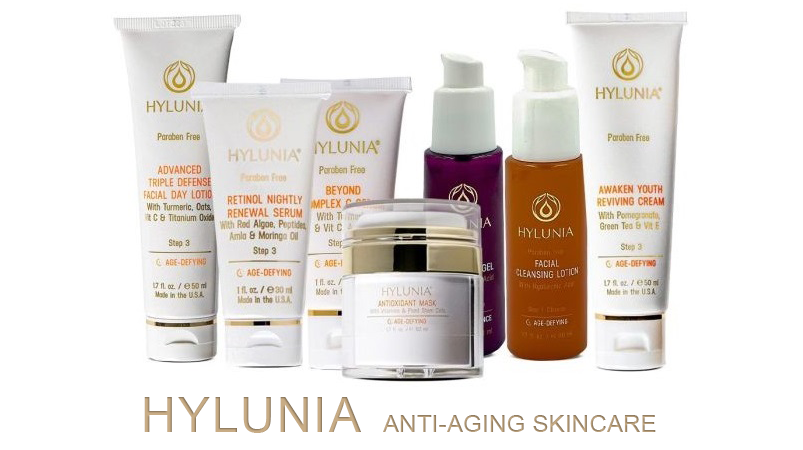
Retinol has been a skincare superstar for years, and it’s no surprise why. Known for its anti-aging power, retinol is one of the few ingredients with scientifically proven results in reducing fine lines, evening out skin tone, and improving texture. But how does it work, and is it right for everyone?
Contents
What is Retinol, and Why Does It Matter for Aging Skin?
Retinol is a derivative of vitamin A, a powerful antioxidant known for its ability to speed up cell turnover and boost collagen production. Essentially, it helps skin renew itself, sloughing off old cells and encouraging new, healthier cells to come to the surface.
How Retinol Fights the Signs of Aging
Retinol works by penetrating deep into the skin’s layers, where it accelerates the rate at which skin cells renew themselves. This increase in cell turnover helps fade dark spots, smooth out wrinkles, and improve overall texture. For aging skin, this means a reduction in fine lines, a brighter complexion, and a smoother surface.
Collagen Support: Retinol’s Secret Weapon
As we age, collagen production decreases, leading to sagging and wrinkles. Retinol stimulates collagen production, helping to rebuild the skin’s structure and maintain firmness. This effect makes retinol a powerhouse for keeping skin looking youthful and resilient.
How to Start Using Retinol in Your Routine
Retinol can be a game-changer, but it’s important to start slow. Because retinol is so potent, introducing it gradually helps your skin adjust and reduces the risk of irritation.
Start with a Lower Concentration
If you’re new to retinol, begin with a low concentration, around 0.25% to 0.5%. Higher concentrations can be effective, but starting small gives your skin time to build tolerance. As your skin adjusts, you can move up to higher strengths.
Apply Sparingly
- Pea-Sized Amount: A small, pea-sized amount is enough for your entire face. A little goes a long way with retinol.
- Avoid Sensitive Areas: Be careful around the eyes and corners of the mouth, where skin is thinner and more prone to irritation.
Using a small amount can help reduce irritation and make it easier for your skin to adapt.
When and How to Use Retinol for Best Results
Retinol is most effective when used at night, as it can make your skin more sensitive to sunlight. Here’s a step-by-step guide to help you integrate retinol into your evening routine safely and effectively.
Step 1: Cleanse Your Skin
Start with a gentle cleanser to remove makeup, oil, and dirt. Avoid harsh cleansers that can strip the skin, as retinol works best on a balanced, clean base.
Step 2: Apply Retinol on Dry Skin
After cleansing, wait a few minutes for your skin to dry completely. Applying retinol to damp skin can increase irritation, so make sure your skin is dry before you start.
Step 3: Follow with a Moisturizer
- Apply a nourishing moisturizer after retinol to hydrate and help lock in moisture.
- If your skin feels particularly dry, you can apply moisturizer before retinol as a buffer, which can reduce sensitivity.
This combination of retinol and moisturizer helps maintain hydration while allowing the retinol to work effectively.
Managing Potential Side Effects
Retinol is known for its benefits, but it can cause some side effects, especially when you first start using it. Here’s what to expect and how to manage any initial reactions.
Common Side Effects
- Redness and Dryness: It’s normal to experience some redness and dryness initially, as your skin adjusts to retinol.
- Peeling: Retinol speeds up cell turnover, so peeling can occur as old skin sheds.
If you notice these side effects, don’t worry—they’re temporary. Your skin will adapt over time, and the peeling is a sign that retinol is working to renew your skin.
How to Reduce Irritation
If irritation is a concern, start by using retinol just once or twice a week. Gradually increase the frequency as your skin builds tolerance. You can also use a hydrating serum or moisturizer with soothing ingredients like hyaluronic acid, glycerin, or ceramides to counteract dryness.
Protecting Your Skin While Using Retinol
Because retinol makes skin more sensitive to the sun, it’s essential to protect your skin during the day. Sun exposure can exacerbate irritation and reduce the effectiveness of retinol, so taking precautions is key to seeing results.
SPF is Non-Negotiable
Always wear sunscreen with at least SPF 30 during the day. This is crucial for protecting your skin while using retinol and preventing further sun damage, which can counteract the benefits of your anti-aging routine.
Limit Sun Exposure
- Try to avoid peak sun hours, typically between 10 a.m. and 4 p.m., when UV rays are strongest.
- Wear protective clothing like hats and sunglasses to keep your skin safe and healthy.
Taking these precautions helps safeguard your skin, ensuring that your efforts with retinol truly pay off.
Alternatives for Sensitive Skin
Not everyone’s skin can tolerate retinol, and that’s okay. If retinol causes too much irritation, there are gentler alternatives that still offer anti-aging benefits.
Bakuchiol: The Natural Alternative
Bakuchiol is a plant-based ingredient that mimics the effects of retinol without causing sensitivity. It’s a great option for those with sensitive skin who want similar anti-aging results without irritation.
Peptides: Collagen-Boosting Powerhouses
Peptides are another excellent choice for sensitive skin. They support collagen production, firm the skin, and reduce the appearance of wrinkles. Peptides are non-irritating and can be used daily, making them ideal for those who can’t tolerate retinol.
While retinol is a powerful tool in anti-aging, these alternatives offer effective results for those looking for a gentler option.
The Long-Term Benefits of Using Retinol
Retinol is often called the “gold standard” in anti-aging skincare, and for good reason. With consistent use, retinol helps smooth wrinkles, fade dark spots, and improve texture. It’s one of the few ingredients that can deliver visible, long-term results that keep skin looking vibrant and youthful.
Building retinol into your routine takes patience, but the payoff is worth it. With the right application, protection, and consistent use, retinol can help you achieve smoother, firmer, and more radiant skin, making it a cornerstone in any effective anti-aging skincare plan.

